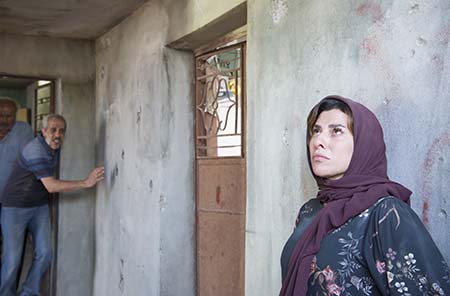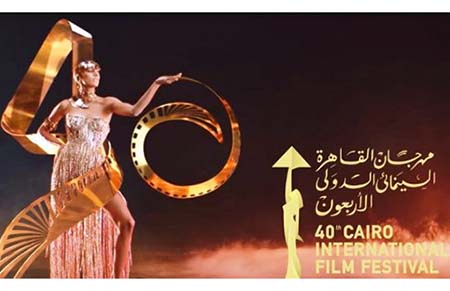Colourist Belal Hibri recounts the grading journey for "The Insult", the landmark film that earned Lebanon its very first Oscar nomination.

The Insult earned Lebanon its very first Oscar nomination. From depicting a gritty Beirut summer to ensuring the defence lawyers skin tone projected consistent contrast ratio and colour, colourist Belal Hibri gives BroadcastPro ME an account of the grading challenges the landmark film posed.
The nominees at the 2018 Oscars boasted a number of world firsts. Rachel Morrison became the first female cinematographer to receive an Oscar nod in the award shows 90-year run, while Mudbound, the film she shot, officially marked Netflixs first original feature in the competition.
Then theres The Insult. Having already gained critical acclaim at the Venice Film Festival, the courtroom thriller which follows the story of an insult blown out of proportion between a Lebanese Christian and a Palestinian refugee in modern-day Beirut made history as the very first Lebanese film to make it to the Oscars, with a nomination in the foreign language category.

Ive been working on Lebanese features for the past eight years. Its been amazing having a front row seat to the industrys evolution here, begins Belal Hibri, co-founder of Lucid Post. The Beirut-based facility, which operates as a full-service post house, oversaw the completion of everything from pre-production testing to the final grade on The Insult, and Hibri certainly has quite a few things to say about his homes rising voice on the world stage of film.
There tend to be two approaches to narrative in this country, he explains. The first is to try and appeal to European tastes to attract funding, co-production and an eventual big festival premiere. That generally means the film will not do well with local audiences, however, as they have a preference for television-style drama. When we first got the opportunity to work with director Ziad Doueiri, we knew he wanted things to be different. His film West Beirut is a classic in Lebanese cinema, but he was also the focus puller on many of Tarantinos films, from Four Rooms to Jackie Brown. It was a thrill to be in the grading suite and hear him tell stories about how they shot Pulp Fiction!
Our first challenge was to collaborate with the director and cinematographer Tommaso Fiorilli to evoke the feeling of heat in the Beirut summer Belal Hibri, co-founder of Lucid Post that did pre-production testing and the final grade on The Insult
Because of his experiences both at home and in Hollywood, Hibri reveals Doueiris main aim for The Insult was to be unique in combining both local and Western aesthetics. While the history of Lebanon would play a big part in motivating the characters throughout the script, it would also speak to a much more universal question of conflict resolution. People from all over the world would be able to access its underlying emotional message. This would also be reflected throughout the films production and final grade.
The film was primarily shot in 2.8K RAW on a pair of Alexa XTs, Hibri recalls. For a few scenes, Ziad operated a Sony A7s II recording out to a Shogun in 4K ProRes 422 HQ. All of the drone photography was captured in DNG RAW with a DJI Inspire 1, and there were even a few quick cutaways shot on a smartphone! Our job was to initially conform and match all these different rushes together with proper colour management, which we did in DaVinci Resolve Studio.
When we came to working on the dailies and final grade, our first challenge was to collaborate with the director and cinematographer, Tommaso Fiorilli, to evoke the feeling of heat in the Beirut summer. Ziad was keen to have the image feel hot, gritty and golden, while still allowing in blues and greens to help avoid falling into sepia-land. As the story progresses, we then start to enter the courtroom and the look shifts to help focus our attention on the performances. Each of the different courtroom scenes has its own personality and we set looks based on each ones specific tone, energy and atmosphere.
The grading process for the main courtroom scenes required handling 360-degree lighting, created so that the entire room could be framed in-shot. Diamond Bou Abboud, who plays a defence lawyer in the film, has beautiful fair skin that caught bounce from everywhere, Hibri reveals. We had many scenes that would begin with red bounce from a wall to her left, and as she walked around the courtroom and stood backlit in front of a large window, the Optima Zoom would flare blue in the blacks.
It was very important to us all that her face keep a consistent contrast ratio and colour, which took a fair amount of masking and dynamics. Luckily, DaVinci Resolves awesome 3D tracker and power windows were all I needed during those long Steadicam shots. It is the tool that saved me time and time again during this project. We ultimately also used Resolves collaborative workflow features to render reels on a second system while continuing to work in the hero suite, saving us more precious time in between cinema tests.
While Chilean drama A Fantastic Woman edged out The Insult to win best foreign film at the Oscars, Hibri says this is just the beginning.
Beirut is a city full of juxtapositions, big emotions and a complicated history. The Insult speaks to those complexities, he concludes. I also believe its optimism leaves you with a feeling of hope, which is rare for a film about the Middle East. I believe its success will inspire a new crop of Lebanese films which can strike a similar balance of social issues, entertainment and high-quality production. I cant wait to see what the next eight years will bring.















































































